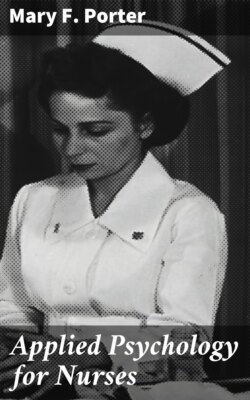Читать книгу Applied Psychology for Nurses - Mary F. Porter - Страница 24
На сайте Литреса книга снята с продажи.
Consciousness in Delirium
ОглавлениеAt this time of our study it will suffice to say that in delirium and in insanity, which we might very broadly call a prolonged delirium, the toxic brain becomes a house in disorder. The censor is sick, and sequence and coherence are lost as the thronging thoughts of the unconscious mind press beyond the portals into consciousness, disordered and confused. We shall later find, however, that this very disorder falls into a sort of order of its own, and a dominant emotion of pain or ecstasy, of depression or fear, of exaltation or depreciation calls steadily upon the stored away incidents and remembered, related feelings of the past and interprets them as present reality. The censor of the sick brain is stupefied by toxins, shock, or exhaustion, and the citadel he is supposed to guard is thronged with besiegers from every side. The strongest—i.e., those equipped with most associations pertinent to the emotional status at the time—win out, occupy the brain by force, and demand recognition and expression from all the senses, deluding them by their guise of the reality of external matter.
We find consciousness, then, determined by all past experience, by an external world, and by its organ of expression—the brain.
Consequently, our psychology leads us into anatomy and physiology, which, probably, we have already fairly mastered. In rapid review, only, in the following chapter we shall consider the organs of man’s consciousness, the brain, spinal cord, and the senses, and try to establish some relation between the material body and its mighty propelling force—the mind.
